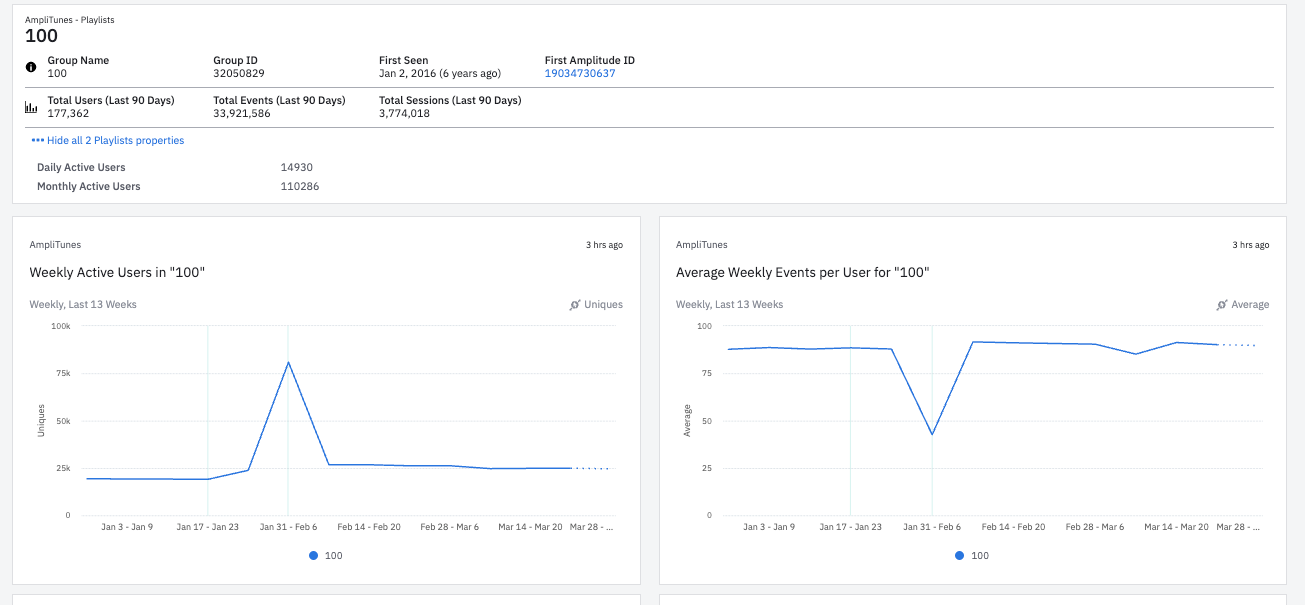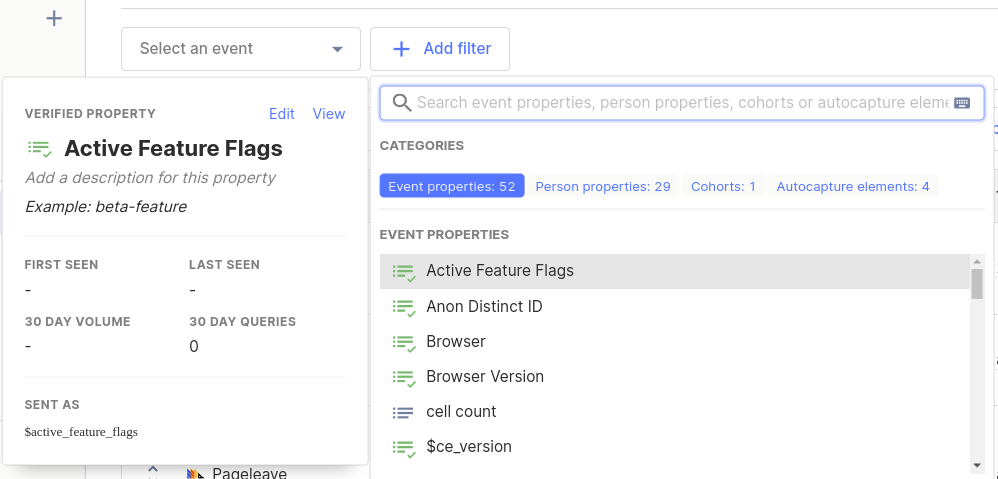- How do I track the events that occurred to a particular object/group? Is there a particular chart type that might help with this?
The user/account look up looked promising, but didn’t pan out. I’m playing with the demo and I can see a stream of events for a particular user. How do I see the stream of events for a particular playlist in the demo? - If I have a bunch of events with the same property is there a way to see all the events that occurred with a given value of that property. This would be another way that I might want to solve for this use case
Hey
If I’m understanding correctly, you want to see the activity based on a group type?
On the User Lookup page, you can try navigating to Account, and then the Playlists/users drop down will be activated.

You can then open any Playlist group and see a bunch of pre-made chart types for that group i.e a playlist in the demo case as seen below lhttps://analytics.amplitude.com/demo/project/168342/account-search/100?groupType=Playlists ]

Depending on whether you are looking a user property/group property, you can use the event segmentation chart and filter on the group type you are interested in as long you have the group properties available for that group. Afaik, the “Group ID” is set internally by Amplitude and in the absence of any group properties you will have to use the “Group Name” to query your group.
So a sample chart for the above group name “100” could like the following if you want to see events belonging to a particular group - https://analytics.amplitude.com/demo/chart/new/kynjky4
For events belonging to a particular user property, a chart like this will help -https://analytics.amplitude.com/demo/chart/new/it1xmr3
Let me know if I have interpreted your question correctly. Hope this helps.
Thanks
But I was really hoping to see a rough timeline of events for a particular object.
For example PostHog has an equivalent user lookup/timeline feature and I can use it to filter by an event property value without having to select any events.

I could have sworn this was an Amplitude feature that I’d seen before.
I’m not quite sure if I caught this correctly yet, but currently there is no way to lookup the values collected on any property (user/event) in a single place. We have to select the property on the event in a chart and see the dropdown to view all possible values. I have a feature request in place for this one.
However, you can see all the event properties collected across events in the Event Properties Govern Tab if that’s what you are looking for. This might mimic the screenshot that you shared.

I added my own feature request that might explain it better.
Let’s say I had an object called a product. I would want to filter the user look up view to see all interactions with a particular product the way I can see all interactions that a particular user made. It would be an a clear linear timeline of events.
Makes sense now. The Real-Time Activity section of the User Lookup feature shows only the most recent 100 events from the last day sent to Amplitude (based on upload time), so all historical events might not be possible here. Right now, the only consolidated linear event stream we can view is for an individual user.
Reply
Welcome to the Amplitude Community!
If you don't have an Amplitude account, you can create an Amplitude Starter account for free and enjoy direct access to the Community via SSO. Create an Amplitude account. You can also create a Guest account below!
If you're a current customer, select the domain you use to sign in with Amplitude.
analytics.amplitude.com analytics.eu.amplitude.comWelcome to the Amplitude Community!
If you don't have an Amplitude account, you can create an Amplitude Starter account for free and enjoy direct access to the Community via SSO. Create an Amplitude account. Want to sign up as a guest? Create a Community account.
If you're a current customer, select the domain you use to sign in with Amplitude.
analytics.amplitude.com analytics.eu.amplitude.comEnter your E-mail address. We'll send you an e-mail with instructions to reset your password.


